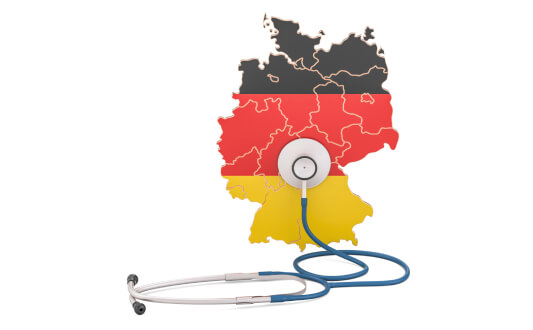Kidney transplantation is the most effective method of treating terminal renal failure. In comparison with hemodialysis and peritoneal dialysis, this type of surgery increases the patient's life expectancy by an average of 2 times. Transplantation is the main method of treating renal failure in children, because hemodialysis can affect their physical development.
How is kidney transplantation performed?
Kidney transplantation surgery takes place in two stages. During the first stage, the kidney is taken from the donor. For this, laparoscopic or an open nephrectomy is performed. The kidney is stored in a thermo container. Optimal surgery results are achieved if the kidney is transplanted into the recipient within 24 hours.
Then the recipient stage of transplantation follows. The kidney is transplanted in the iliac fossa, more often on the right side, in the retroperitoneal space. The patient’s own kidneys are not removed except in some cases, when they cause problems (bleeding, suppuration, hypertension, etc.).
Who can become a donor for a kidney transplantation?
Kidney donors are most often selected among relatives. If there are none, then donors are selected according to these parameters: ABO blood group, HLA alleles (histocompatibility), comparison of anthropometric indicators and sex of donor and recipient.
The life duration of a donor after a kidney transplantation does not change as the body has sufficient reserves. The first symptoms of renal failure in humans appear only after 90% of renal cells die. If even 10% of nephrons are able to provide full blood filtration, then one complete kidney can carry on all the functions of this organ.
What are the consequences of kidney transplantation?
Rehabilitation is quite fast after a kidney transplantation. It may be as soon as the next day when a patient can get out of bed and walk. On average, the patient is discharged from the hospital after 2 weeks. However, for the next 6 months, physical activity is limited.
After kidney transplantation, the prognosis depends on who became the donor of the kidney. The best transplantation results are achieved if the organ has been transplanted from a relative. In this case, the life expectancy of the patient reaches 15-20 years, subject to compliance with medical recommendations. It is necessary to take prescribed medicines on time. About 5-10% of cases of transplant loss are due to the patient's unauthorized refusal to receive immunosuppressants.
To maintain the organ function after kidney transplantation, most patients need to follow the diet. It involves reducing the intake of salt, ensuring the amount of liquids (up to 2 liters per day), and reducing the consumption of fried and smoked foods.
How much does a kidney transplantation cost?
The cost of a kidney transplant varies from country to country. For example, in Germany the average price of a kidney transplantation from a living related donor is 66,400 euros. In the United States, the same operation will cost 150,000$ or more. In India, the average transplantation cost is 75,500 euros, and in Turkey this price is 46,880 euros.
What is the best place to receive kidney transplantation?
If price is not an issue, it is best to undergo a kidney transplantation in Israel, Germany, the US or other developed countries. The most highly educated doctors work here, clinics are well equipped, there is lower intraoperative mortality and the risk of complications. However, not everyone has the kind of money that can afford the services of the best specialists in the world. Therefore, many people receive kidney transplantation in India. There, the surgery is several times cheaper. In addition, kidney transplantation can be done in Turkey at a considerably lower and affordable price.
What hospitals perform kidneys transplantation?
You can undergo a kidney transplant from a living related donor in specialized and multidisciplinary hospitals in different countries:
- University Hospital of Ludwig Maximilian University of Munich, Department of Adult and Pediatric Urology
- Memorial Sisli Hospital Istanbul, Department of Urology and Andrology
- Medipol Mega University Hospital Istanbul, Department of Adult and Pediatric Urology
- University Hospital Ulm, Department of Adult and Pediatric Urology
- Urology Hospital Munich-Planegg Munich, Department of Adult and Pediatric Urology
Services of Booking Health
If you need to receive kidney transplantation, you can use the services of Booking Health.
We will help:
- Choose a clinic
- Organize treatment in Turkey, Germany, India, Israel or other countries
- Issue documents, translate medical documentation, book flights and a hotel
- Save on medical services
If you use the services of Booking Health, the cost of treatment is guaranteed not to increase, even if complications occur because all unnecessary expenses will be covered by a comprehensive health insurance.
Choose treatment abroad and you will for sure get the best results!
Authors:
The article was edited by medical experts, board certified doctors Dr. Vadim Zhiliuk, Dr. Nadezhda Ivanisova. For the treatment of the conditions referred to in the article, you must consult a doctor; the information in the article is not intended for self-medication!
Sources:
Centers for Disease Control and Prevention
Read:
Why Booking Health - questions and answers
How to make right decision when choosing the clinic and specialist
7 reasons to trust to the rating of clinics on the Booking Health portal
Don't know where to start?
Contact Booking Health







